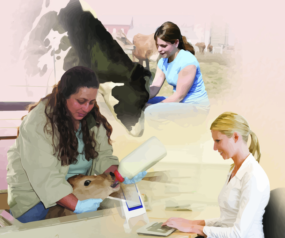As I write, the last of the snow is melting away. Area farmers are looking at futures and weather predictions, deciding what to put in the ground. The same thing is repeated often: “It’s a gamble.” The same sentiment is also used to express feelings about agriculture in general.
Between semesters of a university job overseas, I returned home to help out on the farm for a few months. Little did I know I would be testing the other side of the metaphor.
Looking back, the downfall stemmed from a general sense of politeness. At the local high school girls’ basketball games, I often found myself sitting next to a retired dairy farmer from the community. I did not know him well, nor likely had much in common with him.
He once told me that he participates in Calcutta betting on the NCAA basketball tournament, in which people pool their money together to bid on hopeful teams. I asked him about it. Then he inquired if he should let me know when it was going to happen this year. Not really, I thought.
“Sure,” I said. “Let me know when it’s happening.”
Several weeks later, he stood in our kitchen. We made small talk about the weather and farming. I offered him a cup of coffee, but he declined. Finally, he answered the unspoken question.
“It’s a $500 buy-in,” he said.
I wonder how many big decisions are forced to be made in a split second, and more importantly, how many I have gotten wrong. The value of money is not lost on me – the majority of recent history I did not have $500 in my bank account.
At certain points during this same time, I found myself making rent by working for Chinese bookies, illegally selling wine out of a duffel bag and writing pet food descriptions on the Internet.
“No problem,” I coughed.
It took place at the bowling alley. Nonetheless, this wasn’t the bowling alley I knew. It was dimly lit. The dance floor was covered with old tables that middle-aged men leaned on, whispering to each other.
Although this is not true, I remember smoke drifting from Cubans to create a haze that settled over the room. With such high stakes involved, I expected well-dressed men with fresh haircuts and strong posture, or maybe men in baseball caps and parkas that really loved sports.
There were none of those people there. Instead, it was overweight men in gray sweatshirts, thinning hair and poorly shaven chins. They watched carefully as I walked in.
Our team of bettors was a mixed bag, from a gruff-but-amiable truck driver to a 75-year-old that happened to grow up with both of my grandfathers. Right before the bidding started, a heavy-set man with a polished head and long goatee hovered over the table and asked if he could join us.
Apparently someone knew him, because they called him Gary. He held a wad of bills between his fingers. Finally someone said “Sure,” and then he went bowling.
There were two facts I had to negotiate between: I was the new guy, and there was a lot of money at stake. I tried to pick my battles, applying the appropriate measure of passive-aggressiveness when I could and retreating when I had to.
We had ended up with Belmont, Valparaiso, Gonzaga and Butler. We hadn’t quite used up all of our pooled money – and that was fine by me. Then Gary came back.
He grabbed the list of remaining teams and stroked his goatee. “That Cincinnati, they play ball. Boy, I tell you – we need to get them.”
They were a 10th seed, playing a seventh. The bidding started.
“Well, even if they win,” I said, “they’ll have to play Duke.”
The bidding climbed. Gary poked at our nominated bidder. “Go get them,” he said.
“I’m not sure they’re a great buy,” I said carefully, looking around the table for support but aimed for Gary at the other end.
The price surpassed that of a good team. Gary kept poking. “But they’ll have to play Duke!” I shouted through strained teeth.
We got Cincinnati.
I went up to my grandmother’s to watch the games. They went according to ranking, with Belmont, Valparaiso and Cincinnati falling in the first round and Gonzaga and Butler winning close contests.
As Creighton pulled away from a Cincinnati team void of outside shooting, I reverted back to the most carnal instincts: I wanted to punch Gary. That, however, would not be the most emotional extreme experienced that week.
Several days later, Gonzaga and Butler played at the same time. By then, I had it figured out that they both needed to win several games for me to get my money back, or some combination thereof. Each team had nearly a 10-point lead with 10 minutes left.
Unfortunately, that congruity would continue as I switched between stations to witness their respective demises. “Would you like a bowl of ice cream, dear?” my grandmother asked. “No, I would not,” I snapped back, squeezing the remote. I drove back with a sick feeling in my stomach.
I try to look for the silver lining – something I gained from the experience. The truth is, anything I might have learned from it was something I should have already known.
It plagued me for a few days, and when I thought I could finally drift off to sleep my mind would start listing all the things one could do with the money that was gone. Nonetheless, it would be my father that added the appropriate ending to the story, saying the very thing I expected to hear.
“Four hundred dollars down the drain this week?,” he said, looking at the ground and shaking his head. “That’s still better than farming.” PD

-
Ryan Dennis
- Columnist
- Email Ryan Dennis






